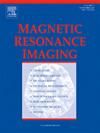A lightweight adaptive spatial channel attention efficient net B3 based generative adversarial network approach for MR image reconstruction from under sampled data
IF 2.1
4区 医学
Q2 RADIOLOGY, NUCLEAR MEDICINE & MEDICAL IMAGING
引用次数: 0
Abstract
Magnetic Resonance Imaging (MRI) stands out as a notable non-invasive method for medical imaging assessments, widely employed in early medical diagnoses due to its exceptional resolution in portraying soft tissue structures. However, the MRI method faces challenges with its inherently slow acquisition process, stemming from the sequential sampling in k-space and limitations in traversal speed due to physiological and hardware constraints. Compressed Sensing in MRI (CS-MRI) accelerates image acquisition by utilizing greatly under-sampled k-space information. Despite its advantages, conventional CS-MRI encounters issues such as sluggish iterations and artefacts at higher acceleration factors. Recent advancements integrate deep learning models into CS-MRI, inspired by successes in various computer vision domains. It has drawn significant attention from the MRI community because of its great potential for image reconstruction from undersampled k-space data in fast MRI. This paper proposes a lightweight Adaptive Spatial-Channel Attention EfficientNet B3-based Generative Adversarial Network (ASCA-EffNet GAN) for fast, high-quality MR image reconstruction from greatly under-sampled k-space information in CS-MRI. The proposed GAN employs a U-net generator with ASCA-based EfficientNet B3 for encoder blocks and a ResNet decoder. The discriminator is a binary classifier with ASCA-based EfficientNet B3, a fully connected layer and a sigmoid layer. The EfficientNet B3 utilizes a compound scaling strategy that achieves a balance amongst model depth, width, and resolution, resulting in optimal performance with a reduced number of parameters. Furthermore, the adaptive attention mechanisms in the proposed ASCA-EffNet GAN effectively capture spatial and channel-wise features, contributing to detailed anatomical structure reconstruction. Experimental evaluations on the dataset demonstrate ASCA-EffNet GAN's superior performance across various metrics, surpassing conventional reconstruction methods. Hence, ASCA-EffNet GAN showcases remarkable reconstruction capabilities even under high under-sampling rates, making it suitable for clinical applications.
基于生成式对抗网络的轻量级自适应空间信道注意力高效网络 B3,用于从采样不足的数据中重建磁共振图像。
磁共振成像(MRI)作为一种值得注意的非侵入性医学成像评估方法,因其在描绘软组织结构方面的特殊分辨率而广泛应用于早期医学诊断。然而,由于k空间的顺序采样以及生理和硬件限制导致的遍历速度限制,MRI方法面临着固有的缓慢采集过程的挑战。磁共振成像中的压缩感知(CS-MRI)通过利用大量欠采样的k空间信息来加速图像采集。尽管具有优势,但传统的CS-MRI在较高的加速度因素下会遇到迭代缓慢和伪影等问题。受各种计算机视觉领域的成功启发,最近的进展将深度学习模型集成到CS-MRI中。由于其在快速MRI中从欠采样k空间数据中进行图像重建的巨大潜力,因此引起了MRI界的极大关注。本文提出了一种轻量级的基于自适应空间通道注意力效率网络b3的生成对抗网络(ASCA-EffNet GAN),用于从CS-MRI中大量欠采样的k空间信息中快速、高质量地重建MR图像。所提出的GAN采用U-net生成器和基于asca的EfficientNet B3编码器块和ResNet解码器。鉴别器是一个二元分类器,具有基于asca的EfficientNet B3、一个完全连接层和一个s形层。effentnet B3采用复合缩放策略,在模型深度、宽度和分辨率之间取得平衡,从而在减少参数数量的情况下实现最佳性能。此外,ASCA-EffNet GAN中的自适应注意机制有效地捕获了空间和通道特征,有助于详细的解剖结构重建。对数据集的实验评估表明,ASCA-EffNet GAN在各种指标上的性能优于传统的重建方法。因此,即使在高欠采样率下,ASCA-EffNet GAN也显示出卓越的重建能力,使其适合临床应用。
本文章由计算机程序翻译,如有差异,请以英文原文为准。
求助全文
约1分钟内获得全文
求助全文
来源期刊

Magnetic resonance imaging
医学-核医学
CiteScore
4.70
自引率
4.00%
发文量
194
审稿时长
83 days
期刊介绍:
Magnetic Resonance Imaging (MRI) is the first international multidisciplinary journal encompassing physical, life, and clinical science investigations as they relate to the development and use of magnetic resonance imaging. MRI is dedicated to both basic research, technological innovation and applications, providing a single forum for communication among radiologists, physicists, chemists, biochemists, biologists, engineers, internists, pathologists, physiologists, computer scientists, and mathematicians.
 求助内容:
求助内容: 应助结果提醒方式:
应助结果提醒方式:


